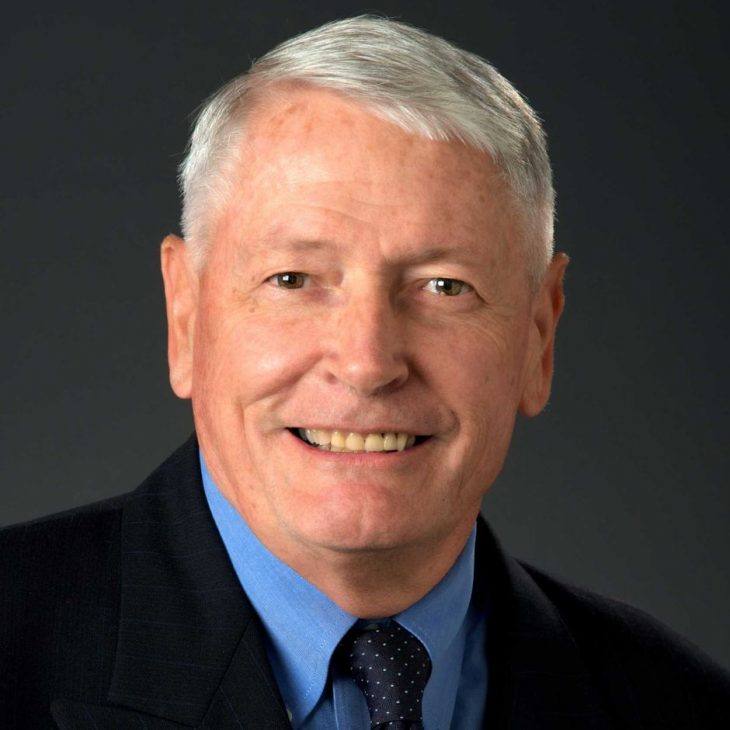
THE CONTINUED ASCENT of Netflix, followed by new online rivals like Disney+, Comcast's Peacock and Apple TV+ – each brimming with original programming to woo new subscribers – threatens to replace the great unbundling of cable TV with the great rebundling of streaming services.
That's the warning of U.S. cable pioneer and top industry strategist John Malone (right), who told his Liberty Media (he’s chairman) investor day last week there's a big downside to simplifying online TV subscription sign-ups by packaging streaming services together.
"This is frankly the mistake that the cable industry made over the years, of agreeing to save a few bucks if you have to carry all and you have to carry them across the board, which became a kind of contractual obligation," he argued.
Malone, who has major stake in the number two U.S. cabler Charter Communications, as well as content powerhouse Discovery Communications, recalls the big cable bundle, as it emerged during the 1980s, led to huge problems for cable TV when Internet-era distribution competition meant viewers could migrate online or to skinny packages.
The trend to more affordable TV packages is something content programmers (on either side of the border) fought as they stood to lose lucrative subscription fees when their full suite of stuff has long been a must-carry in cable packages, even if they increasingly get squeezed during industry carriage renewal talks.
Given ongoing and expensive cable unbundling travails, Malone's warning is part of a debate about the value of aggregation and bundling in the streaming space, where TV viewers are already stacking direct-to-consumer apps or embracing aggregating devices like Apple TV, Roku, Google Chromecast or Amazon Channels to sidestep a traditional pay TV distributor.
Malone points to Dish Network and Sinclair Broadcasting’s carriage fight over the former-Fox Sports regional sports networks as evidence expensive TV sports offered a la carte, rather than as a must carry, could dramatically reduce the overpricing of the cable bundle and actually help stem overall cord-cutting.
“In a world where they're extracting multiples of their fair value from the distribution system, they're not going to voluntarily go that route. This will be painful and it will take years.” – John Malone, Liberty Media
However, that won't happen any time soon. "In a world where they're extracting multiples of their fair value from the distribution system, they're not going to voluntarily go that route. This will be painful and it will take years," Malone predicted of self-interested TV sports programmers as they continue to undercut the prospect of a slimmed-down skinny cable bundle.
This has implications for the Canadian eco-system, where the major distributors also depend on costly TV sport channels to drive revenues, only to inflate full package pricing and encourage cord-cutting.
The rebundling of streaming services is inevitable, Liberty Media CEO Greg Maffei added, as cablers, with ever-smaller customer bases, opt for price increases that only encourages the industry shift to streaming apps or aggregation devices. Here, Maffei pointed out industry trends where Verizon is pairing Disney+ with its wireless bundle to nab scale for Disney's direct-to-consumer offering, and AT&T looking for wide distribution, or scale, for HBO Max, with cable companies as a logical play.
Expect streaming services to continue taking a page from the cable bundling playbook and pay for better placement and added marketing.
All of which threatens new battles between streamers and the streaming devices when contracts for popular content on digital TV apps come up for renewal, while telco and tech giants increasingly opt for their own aggregating devices, as with Comcast's Xfinity Flex streaming box (which is also on the tech roadmaps of Shaw, Rogers and Videotron) and Facebook's Portal TV, to keep customers engaged.
Said Maffei: "You're increasingly seeing Comcast and others, including Charter, look for lightweight devices that recognize, as the big bundle breaks, there's not enough margin, there's no need for that much capital, so you're going to be an app provider.
"It's a different model – lower margins than the traditional big bundle, but higher margin than where the big bundle is headed. And certainly less capital, and it leverages the customer relationship," he added.
That said, if traditional pay TV providers and new direct-to-consumer services think they can survive the great streaming rebundling and reach the ever-elusive consumer by striking industry partnerships, Maffei has his own dire warning: Hollywood and Silicon Valley's escalating and costly streaming wars will eventually ruin the pay TV industry.
"OTT will drain linear TV first, but OTT players will drain each other in a circular firing squad, in our judgment," Maffei told analysts before arguing Liberty Media is aggressively pushing into the audio space, via SiriusXM and Pandora, for more favourable content production and distribution economics.


